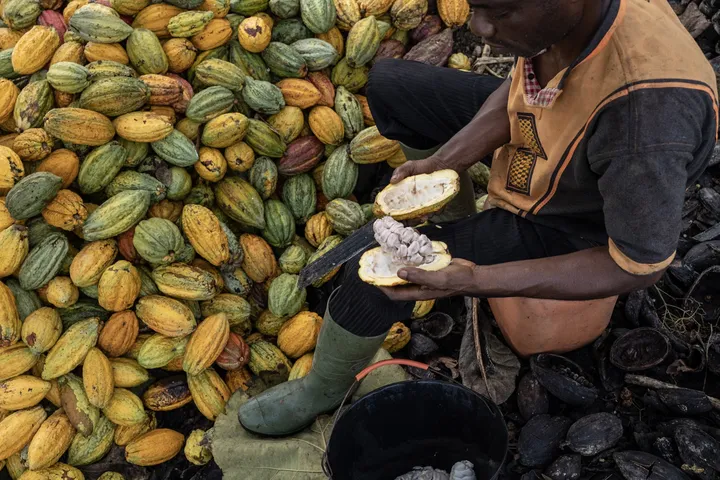
The cocoa industry in Côte d’Ivoire, the world’s largest producer of cocoa beans, is facing significant uncertainty as the United States considers imposing tariffs on cocoa imports. For many Ivorian farmers, who are already grappling with low incomes and fluctuating market prices, the proposed tariffs could spell disaster for their livelihoods.
Côte d’Ivoire accounts for over 40% of the global cocoa supply. The crop is a cornerstone of the country’s economy, contributing significantly to GDP and employing millions of people. Smallholder farmers dominate the sector, with the majority living in rural areas and relying almost exclusively on cocoa farming for their income.
The proposed U.S. tariffs stem from allegations of labor abuses and environmental concerns linked to cocoa production in Côte d’Ivoire. These concerns include:
Child Labor: Reports of child labor in cocoa farming have persisted for years, with international organizations urging stricter enforcement of labor laws.
Deforestation: The expansion of cocoa farms has led to significant deforestation, raising alarms about environmental degradation and climate change.
If implemented, the tariffs could lead to:
Higher costs for Ivorian cocoa exporters, making their products less competitive in the U.S. market.
Reduced demand for Ivorian cocoa, as buyers seek alternative sources.
Further downward pressure on farmgate prices, which are already a contentious issue.
Cocoa farmers in Côte d’Ivoire are already struggling to make ends meet. The current farmgate price, set by the government, often fails to cover production costs, leaving farmers vulnerable to poverty. Many fear that U.S. tariffs will exacerbate their financial difficulties. We work hard to produce quality cocoa, but we’re barely surviving, said Koffi Kouadio, a farmer from the San Pedro region. If the U.S. imposes tariffs, it will destroy our livelihoods.
The Ivorian government has expressed concern over the potential tariffs, emphasizing the country’s ongoing efforts to address labor and environmental issues. Key initiatives include:
Combating Child Labor: Implementation of stricter monitoring and enforcement measures. Collaboration with international organizations to provide education and alternative livelihoods for children and their families.
Promoting Sustainable Farming: Reforestation programs and incentives for farmers to adopt sustainable practices. Introduction of agroforestry systems to reduce deforestation.
Price Stabilization: The government’s Living Income Differential (LID) initiative aims to secure better prices for cocoa farmers. However, its success has been mixed due to resistance from some buyers.
The U.S. is one of the largest importers of cocoa products, and any tariff changes could disrupt global supply chains. Analysts warn that:
Prices for cocoa-based products, such as chocolate, could rise in the U.S., affecting consumers.
Cocoa buyers may shift to other producers, such as Ghana or Ecuador, impacting Côte d’Ivoire’s market share.
International organizations and advocacy groups have called for a balanced approach to addressing labor and environmental issues without harming smallholder farmers. Proposed solutions include:
Technical Assistance: Providing farmers with resources and training to adopt sustainable practices
Trade Partnerships: Developing fair trade agreements that prioritize ethical production while safeguarding farmers’ incomes.
Corporate Responsibility: Urging multinational chocolate companies to invest more in sustainability programs and pay fair prices for cocoa.
Despite the challenges, many Ivorian farmers remain hopeful. We need the world to understand our struggles and support us, said Aminata Traoré, a farmer and community leader. We want to produce cocoa responsibly, but we can’t do it alone.
The coming months will be critical as negotiations and discussions continue. The stakes are high, not only for Côte d’Ivoire’s cocoa farmers but for the entire global chocolate industry.

